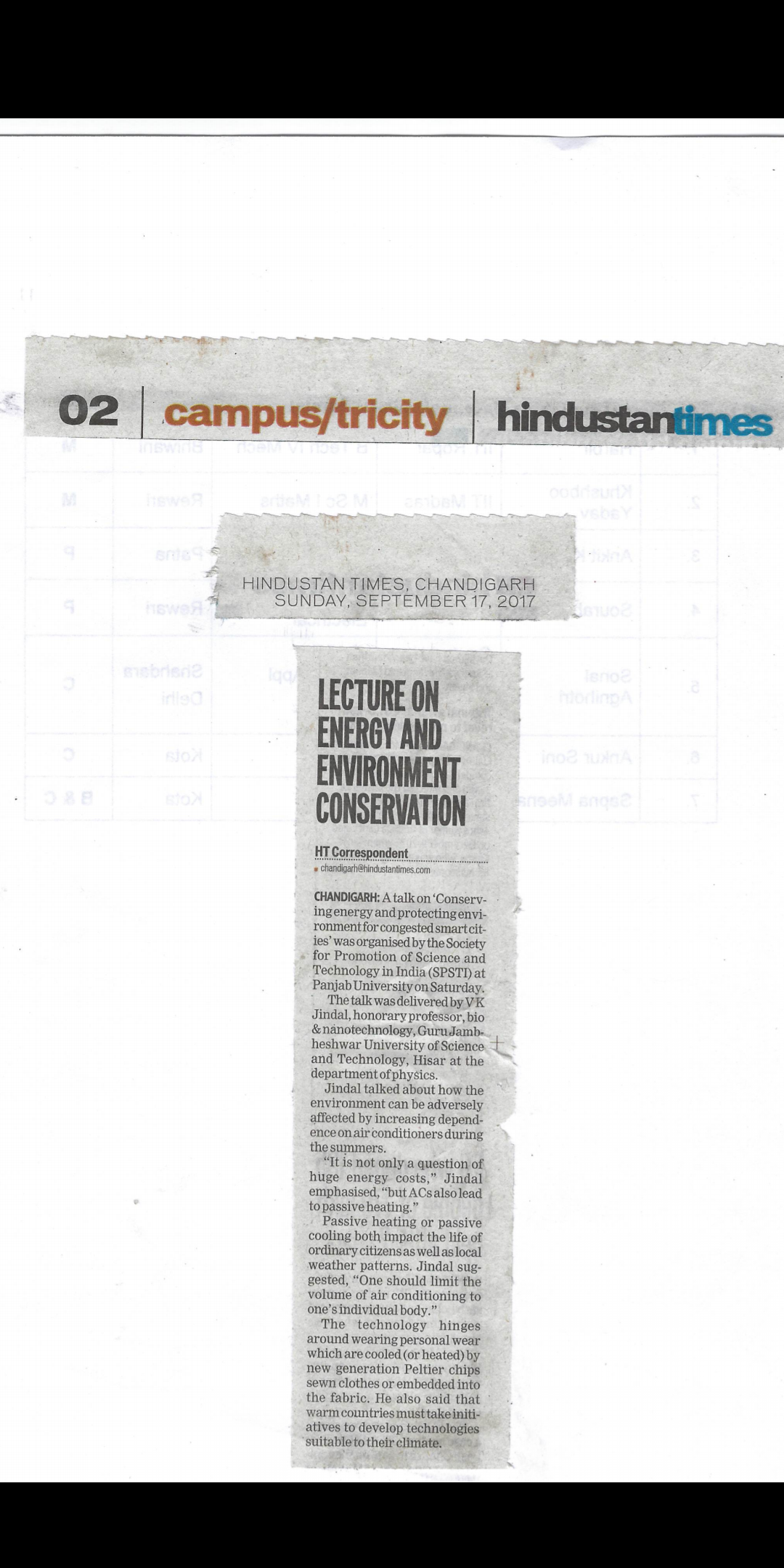Speaker: Prof. V. K. Jindal, Former Professor of Physics, Panjab University, Chandigarh.
Date and Time: September 16, 2017, 10:30 AM
Venue: Seminar Room, Department of Physics, Panjab University, Sector-14, Chandigarh
Abstract:One major component of most facilities that Indian cities which guzzles power primarily arises from air conditioning of living and working spaces. To meet this demand, dirty and unclean sources of energy are also often employed and still falling short of meeting demand. The air conditioning of buildings and corridors is a great challenge not only because they are highly power consuming, but they bring in redistribution of heat by throwing out inside heat to outside with added large component due to inefficiency of air conditioners. Ordinary citizens have to face extra heat in the environment due to this air-conditioning of large spaces and volumes and is equivalent to “passive heating” like passive smoking. The talk will stress on limiting the volume of conditioning to cut down upto 90% by way of limiting this to personal wear and garments which are modified using new and advanced materials based on thermoelectric effects. The thin internal body garment layer can be powered by plug in supply in offices or homes and on batteries in transit. Further all public spaces, offices, shopping and homes where all available volumes are being presently cooled and heated, this innovative idea will be personalized in terms of environment as well as cost. The future technology would be required to develop new nanotechnology based materials with enhanced Peltier coefficient and heat sinks based on highly thermally conducting graphene based nano composite fibers. Smart cities can enforce or encourage such comfort garments for friendly temperatures on the body and thus avoid extensive passive heating or cooling to retain natural climate. This will also do away with noisy compressors and chloflurocarbons responsible for ozone layer damage.
About the Speaker: Professor Jindal has served at Panjab University Chandigarh for about 4 decades and retired as Coordinator Nanoscience & Nanotechnology and Professor of Physics in 2010, then finally as reemployed professor in 2015. He was also an Emeritus CSIR Scientist and now honorary Professor in Bio-Nano at Guru Jambeshwar University of Science.
Professor Jindal completed his Ph.D in 1977 on condensed matter Physics from Panjab University and spent several years as postdoc research starting early 1980 in Germany as Alexander von Humboldt Fellow, in Italy (in 1986) as TWAS fellow and in USA (in 1995) as Fulbright Fellow. He has been making successive short visits till last year in Germany on revisit research visits. He was also employed for over two years in a senior research position by the German Ministry of Research & Technology. He has supervised 15 Ph.D students and published nearly 200 research articles. He has widely served on several national committees for research funding and selection committees. He is well travelled and given seminars and talks in various parts of the world.
Apart from Panjab University, he is an alumni of Bayreuth University (Germany), Technical University Munich, Wuerzburg University and is often involved with research activities of these Universities.
Research interests: Condensed Matter Physics, Nanotechnology, Carbon Nanotubes, Fullerenes and graphene.


